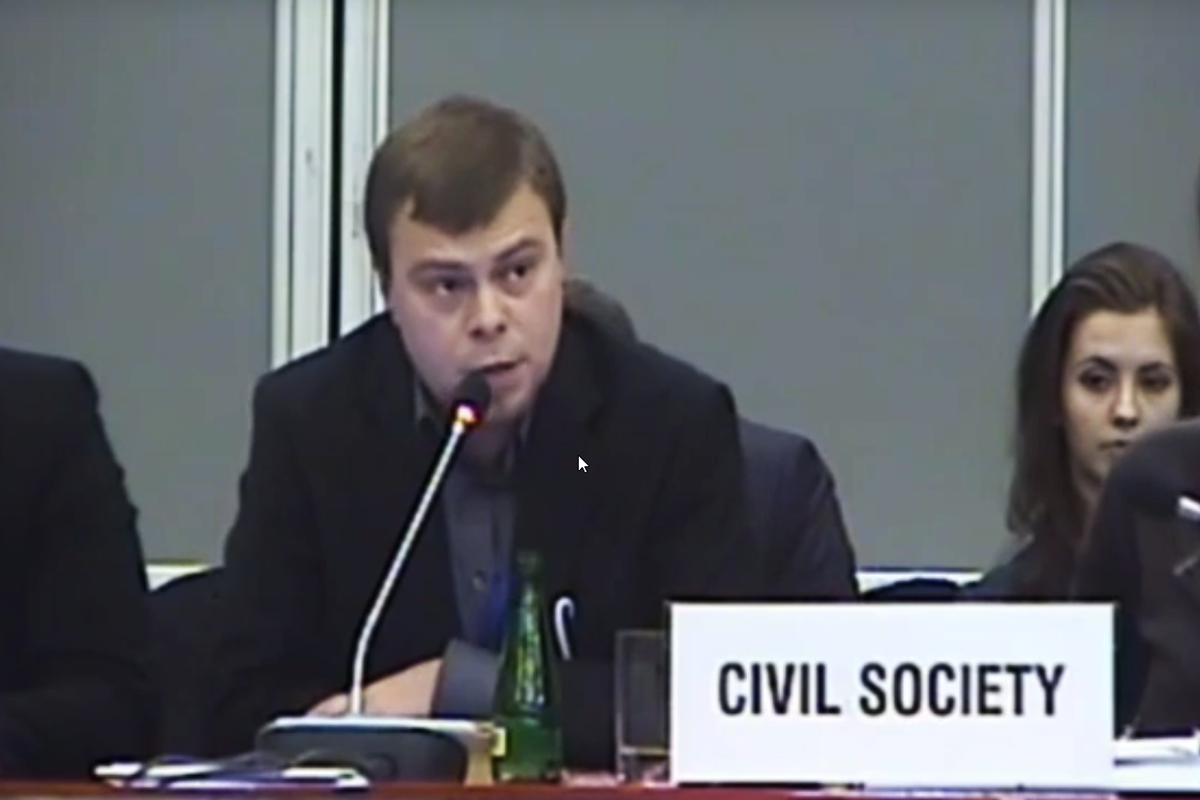Uladzimir Labkovich: We insist on reforming opaque vote count
On September 25, the ninth working meeting of the OSCE Human Dimension Conference in Warsaw raised the problem of democratic institutions, including democratic elections. Uladzimir Labkovich, coordinator of the campaign "Human Rights Defenders for Free Elections", presented the position of Belarusian human rights defenders on the current presidential election.
The human rights activist said that this year’s presidential election is set against the backdrop of significant changes in the geopolitical situation in the region caused by the Ukrainian-Russian conflict and the deterioration of the domestic economic situation. Uladzimir Labkovich emphasized the release of six political prisoners and the release on bail of youth activists charged in so-called “graffiti case”, as well a former presidential candidate, Ales Mikhalevich.
“Human rights activists welcomed these steps of the Belarusian authorities, however, only systemic steps to improve the human rights situation in the country will be able to contribute to the true climate of confidence in the Belarusian society and become a real proof of the authorities’ readiness to launch reforms. We demand the immediate lifting of all criminal charges against the above persons: despite the fact that they are at large, they are still under criminal investigation,” said the human rights activist.
Speaking of the elections, coordinator of the campaign "Human Rights Defenders for Free Elections" noted that the OSCE recommendations to improve the electoral law, which were made on the basis of observations of previous election campaigns, have not been taken into account. Moreover, the recent changes to the Electoral Code worsened campaigning conditions.
“We note with regret that the Central Election Commission did not agree with the human rights defenders’ proposal on the improvement of vote-counting conditions. The process of forming the territorial district commissions retained its negative approach. As before, the main organizers of the elections in Belarus are pro-government NGOs, which compose 35.6% of the total number of members of election commissions. At the same time, the overwhelming majority of representatives from the opposition parties were not included in the election commissions. The commissions included only 6% of the total number nominated by the opposition, which constitutes at little as 0.46% of the overall election commissioners. In particular, the city of Minsk, home to 20% of the country’s voters, does not have a single representative of the opposition in the election commissions. Such a scanty representation of the opposition in the commissions has not been witnessed in any of the previous presidential elections.
Thus, trying to create the appearance of a competitive campaign, the authorities retained full control over electoral procedures. At the same time, noting the absence of any restrictions on the part of the authorities in conducting the collection of signatures by members of the candidates’ nomination groups, we documented numerous cases of abusing administrative resources in order to force voters sign for Aliaksandr Lukashenka.
Election campaigning is currently underway. This stage is also fraught with many forms of illegal campaigning for Mr. Lukashenka, who apparently uses government funds for this purpose. The society is deprived of any opportunity to receive unbiased information, which, given the dominance of state-run media, creates unlimited possibilities for such illegal campaigning.
We urge the authorities not to apply administrative pressure on voters, forcing them to participate in the ballot, as well as to change the vicious practice of non-transparent vote counting. It is imperative that both members of the election commissions and observers could see the count of each ballot. Otherwise, we cannot speak of any progress concerning elections in Belarus.”
Other opinions on the election campaign were expressed by the official representatives of Belarus, as well as a number of opposition leaders, including ex-presidential candidates Andrei Sannikau and Mikalai Statkevich.


















